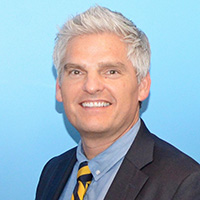As we celebrate Pride Month in June, the Indian Health Service recognizes the diversity of our American Indian and Alaska Native patients. In 2019, the IHS Office of Information Technology, Office of Resource Access and Partnerships, and Office of Clinical and Preventive Services launched a collaborative initiative to train staff to collect voluntary sexual orientation and gender identity, or SOGI, data to identify essential health services. Those new data fields include gender, like male, female, transgender female, transgender male, non-binary, and gender non-conforming; pronouns, like he, she, and they; legal sex; and sexual orientation, like straight, lesbian, gay, and bisexual. The data will also let patients differentiate between birth sex and legal sex, which is vital for electronic health record reminders to work correctly.
Without this information, IHS providers cannot identify the health care needs and address the disparities of our Two Spirit, lesbian, gay, bisexual, transgender, and queer patients. The services can include preventive screenings, gender-affirming care, assessments of risk for sexually transmitted infections and HIV, effective interventions for behavioral health concerns, and anti-stigma work related to Two Spirit and LGBTQ+ individuals.
Collecting SOGI data in electronic health records is essential to providing high-quality, patient-centered care. Therefore, the National Academy of Medicine and The Joint Commission recommend the data collection to learn more about the populations we serve and to measure the quality of care provided to Two Spirit and LGBTQ+ people. While some patients may question the relevance of questions about gender or sexual orientation, providing this information is strictly voluntary, and patients are not required to provide the information. Still, many Two Spirit and LGBTQ+ patients welcome these questions as it gives an opening to talk about their unique health care needs with their providers.
IHS actively collaborates with HHS and tribal organizations to ensure that the management and collection of SOGI data are confidential and support respectful and productive health care engagement. In addition, the IHS Division of Health Information Technology Modernization and Operations is working to modernize our electronic health record system that ensures the management and collection of SOGI data will be secure and assists caregivers in identifying appropriate patient health care services and approaches.
As IHS continues to create a safe, inclusive, and welcoming space for our patients, we realize that it may not always feel safe for Two Spirit and LGBTQI+ individuals. Therefore, our efforts for inclusion include the opportunity for Two-Spirit and LGBTQI+ people to share information about their SOGI experiences in IHS clinics.
If you would like to share your experience, please get in touch with Rick Haverkate (he/him), David Taylor (he/him), or Raho Ortiz (he/him) to let us know how IHS can continue to build a welcoming and patient-centered environment that opens the door to a more trusting patient-provider relationship and improved health outcomes for our patients.
Related Content:
IHS Lesbian, Gay, Bisexual, Transgender, Questioning, and Two Spirit Health
IHS Electronic Health Record
Electronic Health Record Policies and Procedures
Centers for Medicare & Medicaid IHS/Tribal/Urban Virtual Training



